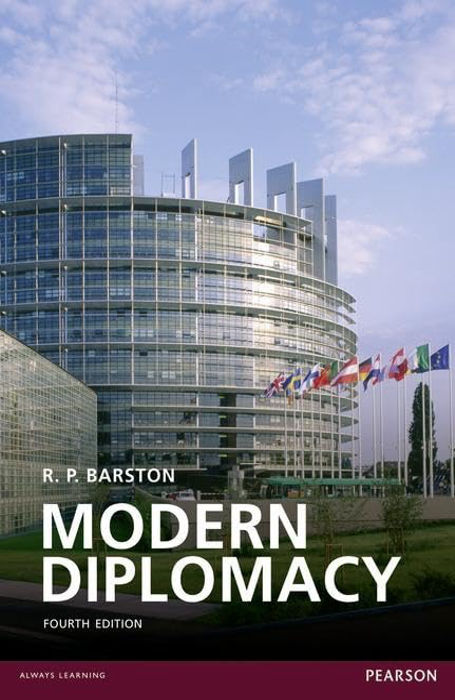Books
R. P. Barston
Modern Diplomacy
R. P. Barston’s Modern Diplomacy is the definitive guide for anyone seeking to understand how diplomacy works in today’s complex world. Through vivid case studies and real-world examples, Barston brings the often-mysterious world of international negotiation to life. This book doesn’t just explain theory—it shows diplomacy in action, from climate agreements to crisis response. Whether you’re a student, practitioner, or simply curious about global affairs, Modern Diplomacy is your essential roadmap to the evolving art of statecraft.
Modern Diplomacy offers a comprehensive exploration of the evolution, concepts, and contemporary practices of diplomacy, making it a cornerstone text for students and professionals alike. Barston organizes the book around five broad topic areas: the nature of diplomacy, diplomatic methods and negotiation, the operation of diplomacy in specific areas, and the role of diplomacy in addressing natural disasters and international conflict. Each chapter is enriched with case studies and examples—such as the Paris Climate Agreement and Brexit—that illustrate how diplomatic principles are applied in real-world scenarios.
The latest edition reflects significant developments in diplomatic practice, including the rise of new regional organizations, the growing importance of international trade and finance, and the emergence of non-traditional and digital diplomacy. Barston also introduces new concepts like parallel and counter diplomacy and discusses the unique challenges faced by developing countries in the international arena. The book’s practical orientation is evident in its detailed coverage of treaty drafting, negotiation techniques, and crisis management, making it especially valuable for those preparing for careers in foreign service or international organizations.
What sets Modern Diplomacy apart is its balance of theoretical insight and practical application, supported by thoughtful analysis and up-to-date case studies. Barston’s clear structure and accessible style make complex diplomatic processes understandable, while his attention to current issues—such as environmental diplomacy, cyber diplomacy, and the workings of the United Nations—ensures the book remains relevant in a rapidly changing world. For anyone interested in how international agreements are forged and global challenges are managed, this book is an indispensable resource.

